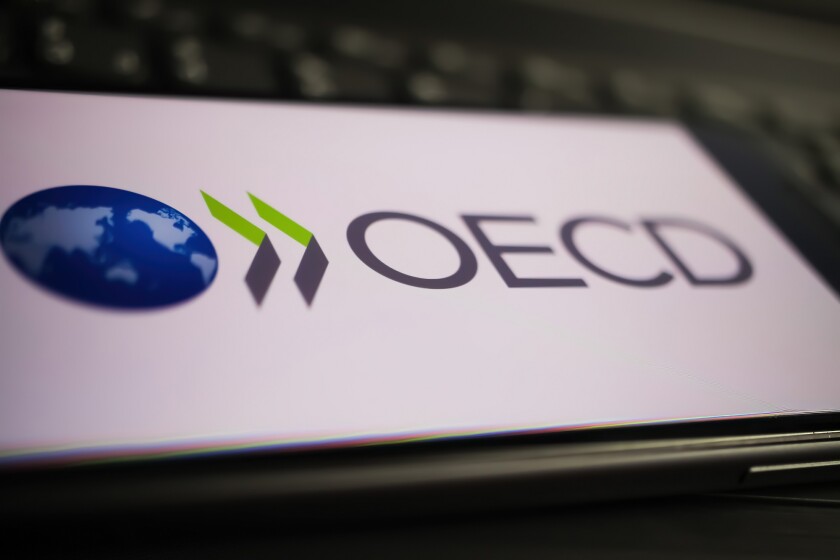The OECD Secretariat presented its updated economic analysis of the impact on tax revenue based on the latest estimates for pillars one and two, during a webinar yesterday, January 18.
It found that the increase in tax revenue from pillar two’s global minimum corporate tax rate is now expected to be about $220 billion annually (9% of global corporate tax revenues). This is based on 2018 data and compares with $150 billion a year in the previous estimate, which was published in 2020.
Pillar one – fairer distribution of taxing rights among jurisdictions over the largest and most profitable companies – is now expected to affect the allocation of about $200 billion in profits, based on data from 2021. This amounts to global annual tax revenues of $13 billion to $36 billion a year. It is a significant increase on the 2020 estimate of $125 billion.
About 50% of the profits under pillar one will come from large digital companies, such as electronics manufacturers and internet businesses.
For pillar one, the OECD has also compiled data on jurisdictional impact. This shows that, on average, low- and middle-income jurisdictions are likely to be allocated new taxing rights and will therefore gain the most. Investment hubs will face greater revenue losses, as they are likely to surrender more taxing rights than they are allocated.
The changes from the 2020 estimate are mainly due to design changes to both pillars, more recent and better data (including increased country coverage and reporting) and some changes in modelling.
David Bradbury, deputy director of the OECD Centre for Tax Policy and Administration based in Paris, said that the research shows that governments (particularly in developing countries) will benefit from implementing the two-pillar solution.
“I do believe this study stands head and shoulders above others that have been released to this point,” added Bradbury, saying: “What we model is very closely aligned to what has been agreed thus far.”
More than 135 countries and jurisdictions agreed the two-pillar solution in October 2021, which aims to ensure a fairer distribution of taxing rights among jurisdictions over the largest and most profitable multinational enterprises, and put a floor on tax competition by creating a global 15% minimum effective corporate tax rate.
In particular, the OECD believes the reform will stabilise the international tax system, enhance tax certainty and avert the proliferation of unilateral digital services taxes and associated tax and trade disputes, which could reduce global GDP by up to 1% annually.
In December 2022, the EU agreed to move forward with the implementation of the global minimum tax. Pillar two has also featured in budgets in the UK and Canada, while South Korea is moving ahead with its legislation. Numerous other countries have said they plan to implement it.
The text for a multilateral convention on pillar one will be opened for signature by the middle of this year.
The OECD webinar is available online and a full economic analysis and detailed methodology are expected to be published soon.











